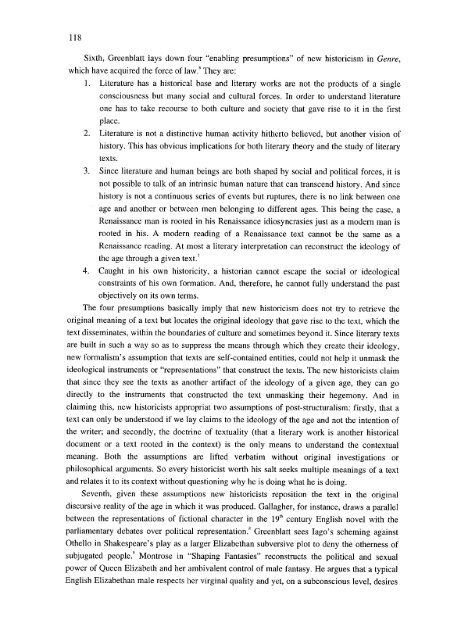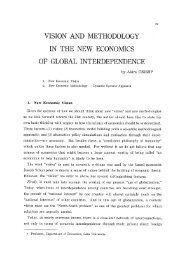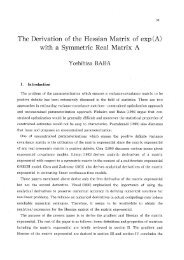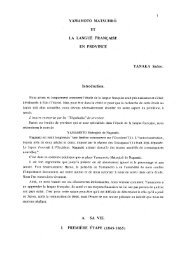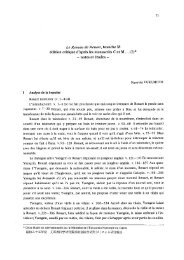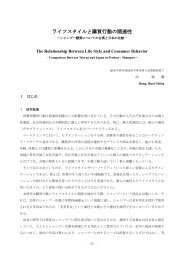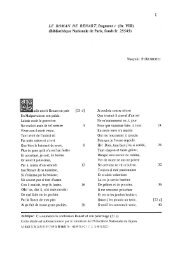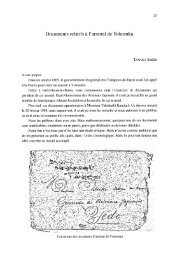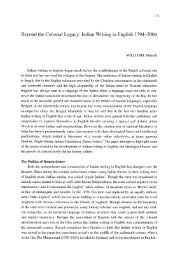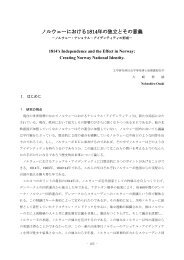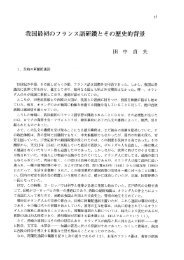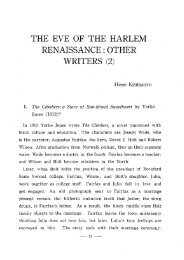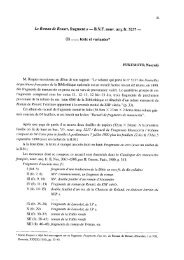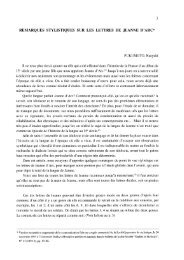New Historicism and Literary Studies - Soka University Repository
New Historicism and Literary Studies - Soka University Repository
New Historicism and Literary Studies - Soka University Repository
Create successful ePaper yourself
Turn your PDF publications into a flip-book with our unique Google optimized e-Paper software.
118<br />
Sixth, Greenblatt lays down four "enabling presumptions" of new historicism in Genre,<br />
which have acquired the force of law.' They are:<br />
1. Literature has a historical base <strong>and</strong> literary works are not the products of a single<br />
consciousness but many social <strong>and</strong> cultural forces. In order to underst<strong>and</strong> literature<br />
one has to take recourse to both culture <strong>and</strong> society that gave rise to it in the first<br />
place.<br />
2. Literature is not a distinctive human activity hitherto believed, but another vision of<br />
history. This has obvious implications for both literary theory <strong>and</strong> the study of literary<br />
texts.<br />
3. Since literature <strong>and</strong> human beings are both shaped by social <strong>and</strong> political forces, it is<br />
not possible to talk of an intrinsic human nature that can transcend history. And since<br />
history is not a continuous series of events but ruptures, there is no link between one<br />
age <strong>and</strong> another or between men belonging to different ages. This being the case, a<br />
Renaissance man is rooted in his Renaissance idiosyncrasies just as a modern man is<br />
rooted in his. A modern reading of a Renaissance text cannot be the same as a<br />
Renaissance reading. At most a literary interpretation can reconstruct the ideology of<br />
the age through a given text.'<br />
4. Caught in his own historicity, a historian cannot escape the social or ideological<br />
constraints of his own formation. And, therefore, he cannot fully underst<strong>and</strong> the past<br />
objectively on its own terms.<br />
The four presumptions basically imply that new historicism does not try to retrieve the<br />
original meaning of a text but locates the original ideology that gave rise to the text, which the<br />
text disseminates, within the boundaries of culture <strong>and</strong> sometimes beyond it. Since literary texts<br />
are built in such a way so as to suppress the means through which they create their ideology,<br />
new formalism's assumption that texts are self-contained entities, could not help it unmask the<br />
ideological instruments or "representations" that construct the texts. The new historicists claim<br />
that since they see the texts as another artifact of the ideology of a given age , they can go<br />
directly to the instruments that constructed the text unmasking their hegemony. And in<br />
claiming this, new historicists appropriat two assumptions of post-structuralism: firstly , that a<br />
text can only be understood if we lay claims to the ideology of the age <strong>and</strong> not the intention of<br />
the writer; <strong>and</strong> secondly, the doctrine of textuality (that a literary work is another historical<br />
document or a text rooted in the context) is the only means to underst<strong>and</strong> the contextual<br />
meaning. Both the assumptions are lifted verbatim without original investigations or<br />
philosophical arguments. So every historicist worth his salt seeks multiple meanings of a text<br />
<strong>and</strong> relates it to its context without questioning why he is doing what he is doing.<br />
Seventh, given these assumptions new historicists reposition the text in the original<br />
discursive reality of the age in which it was produced. Gallagher, for instance, draws a parallel<br />
between the representations of fictional character in the 19th century English novel with the<br />
parliamentary debates over political representation.' Greenblatt sees Iago's scheming against<br />
Othello in Shakespeare's play as a larger Elizabethan subversive plot to deny the otherness of<br />
subjugated people.' Montrose in "Shaping Fantasies" reconstructs the political <strong>and</strong> sexual<br />
power of Queen Elizabeth <strong>and</strong> her ambivalent control of male fantasy. He argues that a typical<br />
English Elizabethan male respects her virginal quality <strong>and</strong> yet, on a subconscious level , desires


